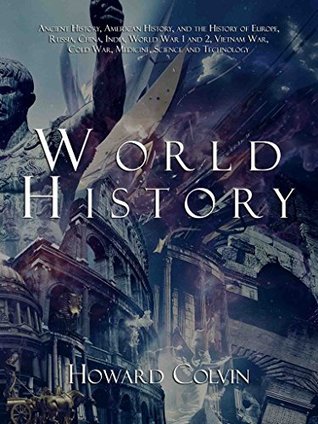Kindle Notes & Highlights
This starts the period which is known as the Late Classical Period. Athens and Sparta weren’t as powerful as they used to be, so Philip II of Macedon rose to power instead. He came from the north and defeated Athens in 338 BCE at the Battle of Chaeronea, and brought all of Greece’s city-states together under his rule. Later he fell to an assassin and his son Alexander took power instead. Alexander would go on to lead Greece back to greatness.
Alexander’s four generals were collectively referred to as the Diodachi, and they had occasional power struggles amongst themselves.
Octavian of Rome defeated Egypt’s Queen Cleopatra and Mark Anthony in 31 BCE at the Battle of Actium, and after the two of them died, Octavian renamed himself Emperor Augustus and incorporated Greece into his new Roman Empire.
One of the earliest deities to be worshipped in the region was Hwt-Ka-Ptah, which means the House of the Spirit of Ptah. The Greek’s version of this name was “Aegyptos”, which gave birth to our modern name “Egypt”.
The Nagada III culture established the Hieroglyphics Scripts sometime between 3,400 BCE and 3,200 BCE, which marked the beginning of written history.
Ancient Egyptians saw their rulers as living gods on earth, so it made sense when Kings Khafre and Menkaure built themselves pyramids around 2,530 BCE and 2,510 BCE. They covered these pyramids in beautiful white limestone, and they served as burial sites for the kings as well as a display of their prestige and wealth.
Scholars have spent years putting forth theories about how the pyramids were built using the technology at the time. Originally it was believed that slaves built the pyramids, but current archaeological digs have disproved this. The digs found evidence of skilled workers, artists, and architects who received housing and a salary for their work. Some have suggested that the Egyptians had technology far more advanced than we knew of, but that it was lost over time.
With Ahmose I came the New Kingdom Period, which lasted from 1,570 to 1,069 BCE. He united Egypt, and with that came economic and social stability. The title of “pharaoh” was introduced at this time, replacing the previous title of “king”.
It was Akhenaten and his wife Nefertiti who turned away from this and brought the single god Aten to Egypt, creating the world’s earliest monotheistic religion.
His signing of the Treaty of Kadesh in 1,258 BCE was the first peace treaty in the world, and it led to an increase in the country’s wealth.
The Northwest culture region reached from northern California to Canada’s British Columbia to the coast. It was warm, resource- and material-rich, and the locals were able to get most of the food they needed from the ocean and rivers. They ate salmon, whales, fish, and other seafood, and they established permanent communities rather than living like nomads.
Notable groups who lived here were the Haida, the Kwakiutlmthe Coos, the Salish, and the Chinook. These communities were more complex than those in other culture regions, and they had a strict social organization. A person's social standing depended on many factors,
a couple of them being how many material goods they owned and how close they were to the chief.
Since Russia had lost more than 25 million people during the war and its industrial infrastructure nearly entirely collapsed, it was that much more remarkable that they were the first to accomplish the feat.
“We are attempting to survive our time so we may live into yours. We hope someday…to join a community of galactic civilizations.”
In 1998 Vasili Arkhipov passed away, he was 72 years old and was never awarded the title Hero of the Soviet Union despite casting the single vote that prevented a nuclear war, it was Vasili Arkhipov that refused to authorize the captain's desire to use the nuclear weapon against the U.S. ships.


